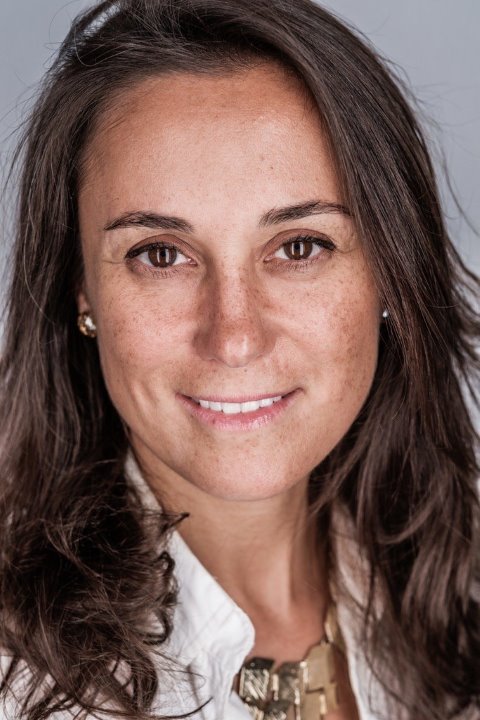
Daniela Barone Soares
It’s now difficult to have a conversation about investing without discussing sustainability and impact. While ESG supporters hail this a success, its sceptics cry ‘greenwashing’. But, as it becomes more mainstream, it can’t simply be dismissed as a passing trend.
Daniela Barone Soares, chief executive of Snowball Impact Investments, hopes the focus will move from ESG integration to impact intentionality, with investors and fund managers alike truly considering the positive and negative impact of their investments.
Willem Sels, global chief market strategist at HSBC Private Banking, argued: “2021 should be the year when investors give sustainable investing even more attention as governments will make commitments, technology will progress further and new green investment options will come to market.
“Identifying ESG-related threats and opportunities and having the talent to adapt to them, is quickly becoming a unique selling point.”
How they do this is likely to be determined by the following five trends:
Focus on the ‘S’
Understandably, there is a lot of focus on the ‘E’ in ESG - environmental concerns and climate change.
But, the Covid-19 crisis has “exacerbated every single inequality,” and the social aspect of ESG now clearly needs to be focused on too.
One reason social issues have been neglected so far is that “it’s much harder to translate social issues into a single number” to represent its impact. How can you compare funding a business being set up in Indonesia that allows a women to feed her children with an initiative to tackle youth unemployment in the UK, Ms Barone Soares questioned.
In addition, “we don’t have a ‘social COP’ as each region, country, city, neighbourhood has its own social priorities, but the Sustainable Development Goals offer a good framework for contributing to solutions. Businesses also can understand the most relevant social issues material to them and focus on them”.
Standardised reporting frameworks
The onus is currently on fund managers to report on impact to investors and the companies in which they invest to report on their impact too. But, ESG and impact investing reporting could benefit from further standardisation.
Progress has already started in this regard. Harvard University has created a new metric: Impact Weighted Accounts. These consider the operations of a company beyond sales and profitability, taking into consideration its negative externalities too.
Ms Barone Soares described this as an “incredibly positive move that can shift behaviour very fast.
“None of this is perfect, but that effort and coalescing of standards will make a big dent in companies’ behaviour.”
Education vs commitment
Emphasis has been placed on an education gap among advisers as a barrier to making sustainable investment mainstream, but this is just part of the problem.
Awareness among advisers is actually high and they can access many initiatives across the wider industry - includingthe CFA Institute’s module on ESG.
The bigger issues is adviser’s lack of commitment to dig deeper and to diligence the real impact of investments, as well as to establish processes to drive that impact or reduce the risk of it not happening.
This is still a new practice and there is no long-term data available to make this an easy choice – it can feel like a "career risk” to advisers.
“To really drive change, we need to see fund managers changing the way they allocate portfolios to meet the growing impact demands of their clients, and to prevent tokenistic investing with an ESG or impact label,” MS Barone Soares argued.
Covid-19 and the green recovery
The origins of this pandemic, rooted in continuing expansion of human activity into natural habitats, have brought the consequences of nature loss into sharp relief. However, it is increasingly clear that these are not just one-off acute events and that the loss of natural capital is a systemic risk for investors and society alike.
Jenn-Hui Tan, global head of stewardship and sustainable investing at Fidelity International believes climate change presents “critical financial and economic risks to society.
“Investors have a key role to play in protecting biodiversity and creating positive biodiversity outcomes.
“While good progress has been made in our understanding around the pricing and integration of climate change risk, it is now incumbent on us to learn to price natural capital correctly - not simply as an input in a manufacturing process, but in a way which recognises and preserves its value for future generations.”
Governments also seem set on a ‘green recovery’, with both the UK and EU committing to greener and more sustainable economies. China has also committed to being carbon neutral by 2060.
Populists
Populists pose both a threat and an opportunity in terms of sustainability.
“Populist governments occur as the result of a vicious cycle.”
“Inequality leads those, who were let down by every stripe of the political spectrum, ‘try something new’, the wild card politician.”
Populists pose a threat as most thwart innovation and reverse progressive environmental and social gains. A recent example is US President Donald Trump pulling out of the Paris Climate Agreement.
However, populists also present opportunities. Everyone can make a difference, it’s not just up to governments, Ms Barone Soares explained.
Businesses, society and investors can make a big difference. There are huge opportunities to create, invest in and grow businesses that address sustainability issues.
The greatest incentive is pricing, Ms Barone Soares said. “If we change the valuation, debt covenants, or interest to the worst offending sectors or industries, you will see companies’ behaviour changing very quickly, even if their governments are not.”
In 12 months’ time…
In 12 months’ time, impact investing may well be “an overnight success, 20 years in the making.”
“The changes are going to come very, very fast. They will be like the advent of the internet was to businesses. It’s going to be an amazing opportunity for those who ‘get it’ and those who don’t will be ‘disrupted out’to rethink your business and reconfigure, or you’re going to completely miss the boat,” Ms Barone Soares concluded.







